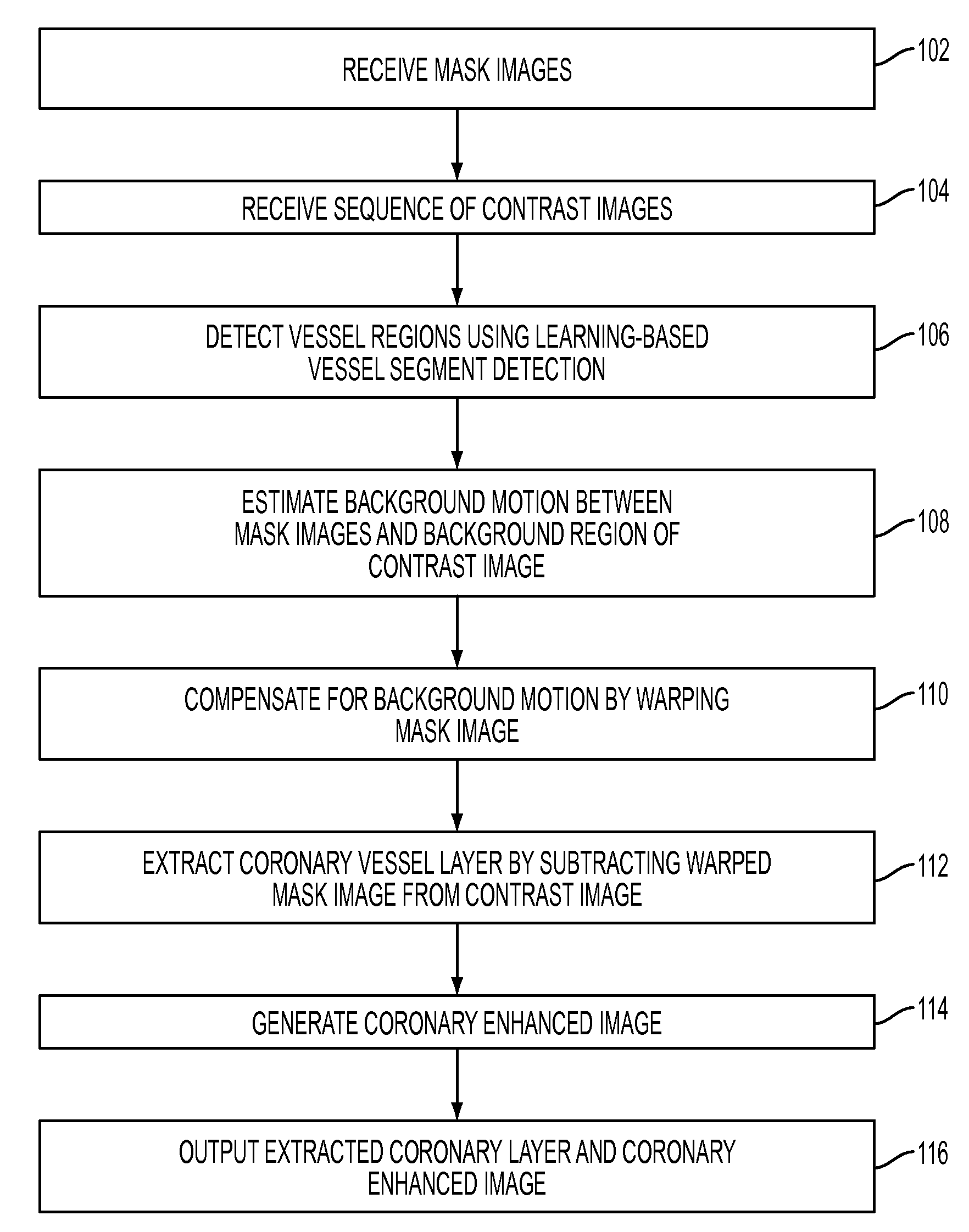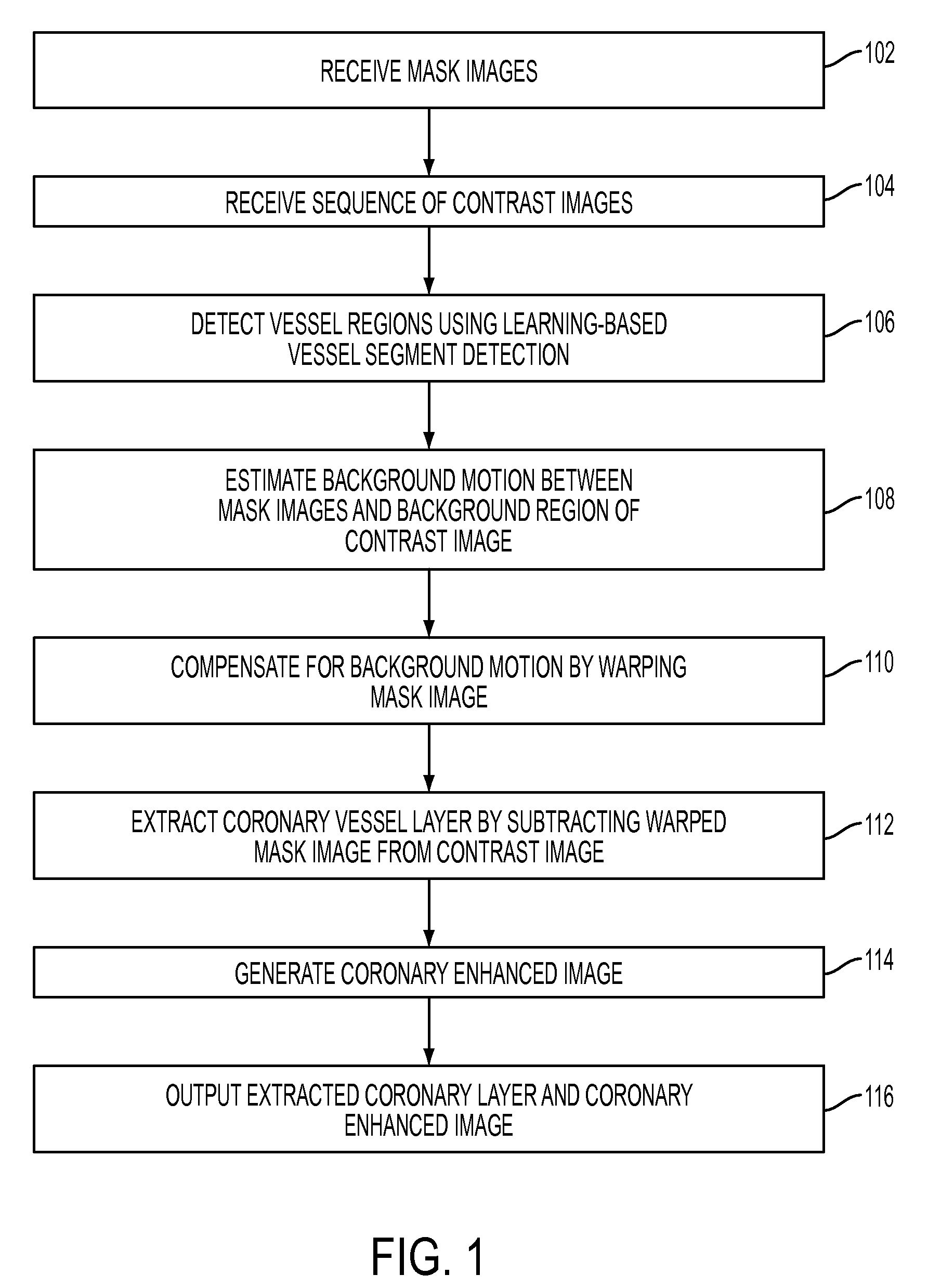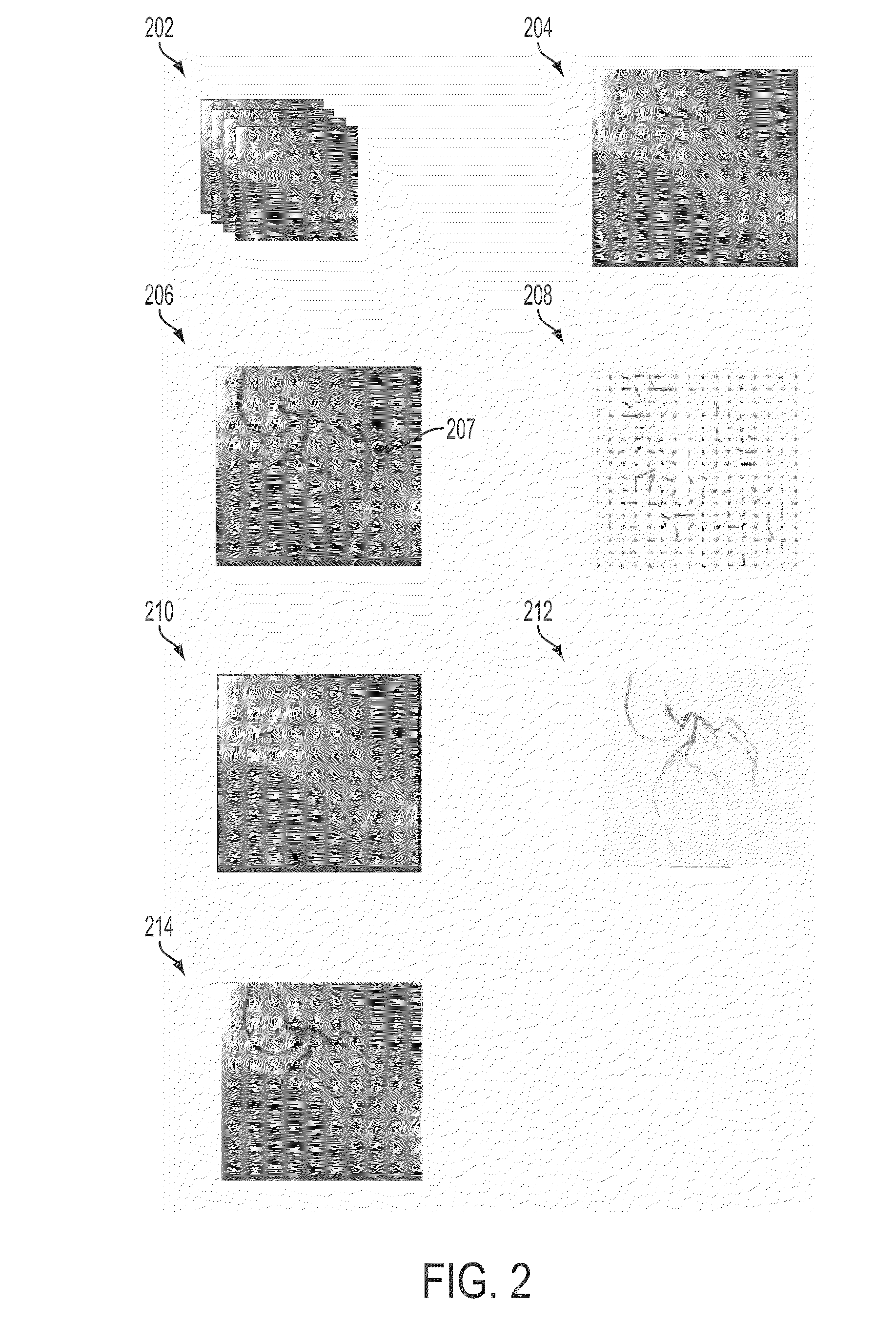System and Method for Coronary Digital Subtraction Angiography
a digital subtraction angiography and digital subtraction technology, applied in the field of fluoroscopic image sequences, can solve the problems of blood-filled structures that cannot be distinguished from surrounding tissue using conventional radiology, information that is difficult to decipher, and it is difficult to accurately distinguish between these structures in the fluoroscopic image sequence using the traditional intensity based approach
- Summary
- Abstract
- Description
- Claims
- Application Information
AI Technical Summary
Benefits of technology
Problems solved by technology
Method used
Image
Examples
Embodiment Construction
[0015]The present invention is directed to a method for detecting coronary vessels from fluoroscopic images. Embodiments of the present invention are described herein to give a visual understanding of the coronary vessel extraction method. A digital image is often composed of digital representations of one or more objects (or shapes). The digital representation of an object is often described herein in terms of identifying and manipulating the objects. Such manipulations are virtual manipulations accomplished in the memory or other circuitry / hardware of a computer system. Accordingly, is to be understood that embodiments of the present invention may be performed within a computer system using data stored within the computer system.
[0016]Digital subtraction angiography (DSA) is a technique for visualizing blood vessels in the human body. In DSA, a sequence of fluoroscopic images, referred to as contrast images, is acquired to show the passage of contrast medium that is injected into ...
PUM
 Login to View More
Login to View More Abstract
Description
Claims
Application Information
 Login to View More
Login to View More - R&D
- Intellectual Property
- Life Sciences
- Materials
- Tech Scout
- Unparalleled Data Quality
- Higher Quality Content
- 60% Fewer Hallucinations
Browse by: Latest US Patents, China's latest patents, Technical Efficacy Thesaurus, Application Domain, Technology Topic, Popular Technical Reports.
© 2025 PatSnap. All rights reserved.Legal|Privacy policy|Modern Slavery Act Transparency Statement|Sitemap|About US| Contact US: help@patsnap.com



